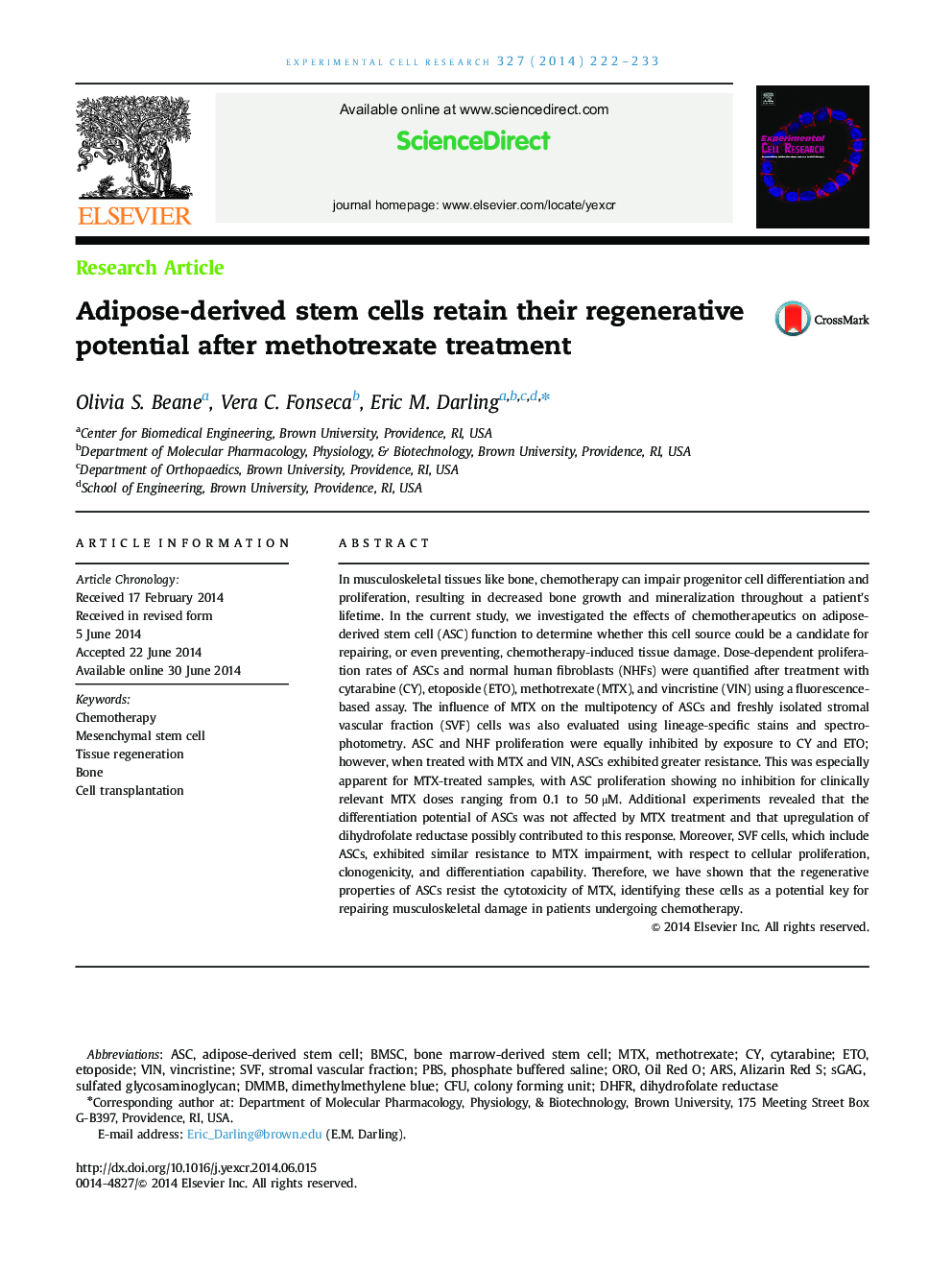| کد مقاله | کد نشریه | سال انتشار | مقاله انگلیسی | نسخه تمام متن |
|---|---|---|---|---|
| 2130340 | 1086555 | 2014 | 12 صفحه PDF | دانلود رایگان |
• Long-term effects of chemotherapeutics can include musculoskeletal dysfunction.
• A screen of common drugs showed disparate effects on ASCs and fibroblasts.
• One drug, methotrexate, did not impair ASC growth characteristics or multipotency.
• Upregulation of dihydrofolate reductase may enable ASC methotrexate resistance.
• ASCs thus pose a possible means to ameliorate long-term tissue damage.
In musculoskeletal tissues like bone, chemotherapy can impair progenitor cell differentiation and proliferation, resulting in decreased bone growth and mineralization throughout a patient׳s lifetime. In the current study, we investigated the effects of chemotherapeutics on adipose-derived stem cell (ASC) function to determine whether this cell source could be a candidate for repairing, or even preventing, chemotherapy-induced tissue damage. Dose-dependent proliferation rates of ASCs and normal human fibroblasts (NHFs) were quantified after treatment with cytarabine (CY), etoposide (ETO), methotrexate (MTX), and vincristine (VIN) using a fluorescence-based assay. The influence of MTX on the multipotency of ASCs and freshly isolated stromal vascular fraction (SVF) cells was also evaluated using lineage-specific stains and spectrophotometry. ASC and NHF proliferation were equally inhibited by exposure to CY and ETO; however, when treated with MTX and VIN, ASCs exhibited greater resistance. This was especially apparent for MTX-treated samples, with ASC proliferation showing no inhibition for clinically relevant MTX doses ranging from 0.1 to 50 μM. Additional experiments revealed that the differentiation potential of ASCs was not affected by MTX treatment and that upregulation of dihydrofolate reductase possibly contributed to this response. Moreover, SVF cells, which include ASCs, exhibited similar resistance to MTX impairment, with respect to cellular proliferation, clonogenicity, and differentiation capability. Therefore, we have shown that the regenerative properties of ASCs resist the cytotoxicity of MTX, identifying these cells as a potential key for repairing musculoskeletal damage in patients undergoing chemotherapy.
Journal: Experimental Cell Research - Volume 327, Issue 2, 1 October 2014, Pages 222–233
